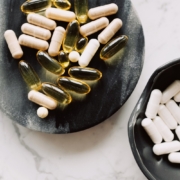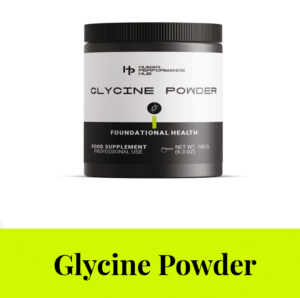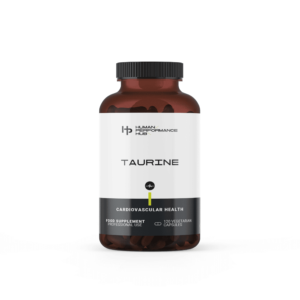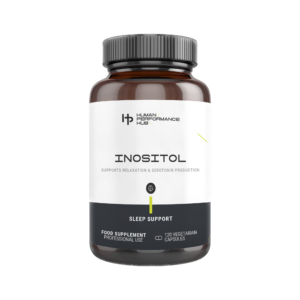When it comes to sport, injuries can sometimes be a part of the game. However, nobody likes to be side-lined for longer than necessary. Fortunately, certain foods and vitamins can help reduce the amount of time your body needs to recover from a sports injury. In this article, Human Performance Hub explores some of the best vitamins for healing muscle tears. So, which vitamins actually help with muscle tears?
Some of the most important vitamins, minerals and nutrients for muscle tears include:
Vitamins
- Vitamin C, Vitamin D
Minerals
- Magnesium, Calcium rich foods
Nutrients
- Protein, Fibre, Omega-3 fatty acids, Zinc, Creatine
Keep reading to learn more about the types of vitamins that help muscle tears and examples of foods that contain them.
Types of Vitamins That Help Muscle Tears
As most of us know, the repairing of bones and soft tissues is a very complex process that our bodies need a vast amount of energy, minerals and vitamins to be able to carry out effectively. Whilst your food regime alone is not enough to heal muscle tears, it can certainly help in speeding up the process. So, which vitamins are best?
Protein
Protein is an important building block for many tissues in your body, including muscle. After a sports injury, the injured body part is often immobilised. This generally leads to a decline in strength and muscle mass. However, getting enough protein can help minimise this loss. Consequently, a protein-rich food regime may help prevent inflammation from getting too bad and slowing down your recovery.
Examples of protein-rich foods include:
- Red meats (beef, lamb, deer, wild boar etc)
- Almonds
- Broccoli
- Chicken
- Fish
- Eggs
According to experts, eating a protein-rich snack before bed may also enhance your body’s muscle-building process while you sleep.
At Human Performance Hub, we offer a range of quality protein powder supplements to help repair tissue.
In particular, we are proud to stock different flavours of Bone Broth Protein Powder. This great-tasting, dairy-free protein powder is ideal for those looking to boost their protein intake to build muscle and aid recovery.
Magnesium
Magnesium acts as a nervous system and muscle relaxant and is responsible for helping us to fight fatigue and regulating our mood. It’s also involved in over 300 chemical processes in the body including; nerve function, blood pressure regulation, bone health, hormonal interaction and the synthesis of proteins and fats. It is also key when it comes to your muscle’s ability to contract and relax which makes it a great mineral to help with torn muscles.
Examples of magnesium-rich foods include:
- Spinach
- Dark chocolate
- Avocado
- Figs
- Pumpkin seeds
At Human Performance Hub, we stock Magnesium L-Threonate Vegetarian Capsules. These vital minerals aid performance, help calm the nervous system and help you sleep. According to research, magnesium Threonate is also hugely beneficial for cognitive function and memory.
Fibre-Rich Foods
During recovery from an injury, there’s a good chance you’ll have limited use of the injured body part. When you move less, you use less energy throughout the day. To help manage your weight whilst you’re recovering, you’ll likely want to eat a little differently. One way to reduce your calorie intake without feeling hungry is to eat food rich in fibre.
Along with the protein-rich foods mentioned above, this will help you eat less without feeling deprived. This is because foods rich in fibre help promote feelings of fullness after meals. On top of this, fibre-rich foods also tend to be high in several other vitamins essential for your recovery, including vitamin C, magnesium and zinc.
Some examples of foods rich in fibre include:
- Fruits (bananas, strawberries, pears)
- Vegetables (sweet potatoes, avocados)
- Legumes
Take a look at our Fibre + & Apple Pectin Powder at Human Performance Hub if you’re struggling to get adequate fibre from your diet. This product is particularly suitable for people looking to avoid grains whilst getting fibre.
Vitamin C
Vitamin C helps your body make collagen, a type of protein which helps maintain the integrity of your bones, muscles, skin and tendons. It is also important for wound healing. Therefore, getting enough vitamin C is a great way to help your body rebuild tissue after an injury. Some of the foods highest in vitamin C are citrus fruits, red and yellow bell peppers, dark leafy greens, kiwi, broccoli, berries, tomatoes, mango, and papaya.
Whilst research is mixed on whether vitamin C supplementation can actually improve athletic performance or speed recovery, individuals who are unable to consume enough vitamin C should consider taking supplements.
To find out more, take a look at our range of vitamin C supplements at Human Performance Hub or read our article, ‘The Amazing Benefits of Vitamin C’.
Omega-3 Fatty Acids
After an injury, the first phase of healing always involves some inflammation. This inflammatory response is beneficial and needed for proper healing. But, if this inflammation remains too high for too long, it may slow down your recovery. One way to prevent this is to eat enough omega-3 fats. These fats, which are found in foods such as fish, algae, walnuts, flaxseed, and chia seeds, are known to have anti-inflammatory properties.
Some studies show that omega-3 supplements may help increase the creation of muscle protein, reduce the loss of muscle during immobilisation and promote recovery from concussions. Omega 3 also helps to prevent and manage heart disease.
At Human Performance Hub, our Omega 3 Ultra Softgel Capsules provide 600 mg of eicosapentaenoic acid (EPA) and 400 mg of dexahexapentaeonic acid (DHA) in each 2-softgel serving. This product is perfect for individuals seeking a high-potency omega-3 product.
To find out more, take a look at our insightful article, ‘How Much Omega 3 Should an Athlete Take?’
Zinc
Every single tissue in our body contains zinc, which is why it is such an important mineral when it comes to muscle tears. Zinc helps support the metabolism of proteins that your body needs to rebuild the injured area.
On top of this, zinc:
- Helps promote wound healing
- Reduces inflammation
- Stabilises protein structures
- Helps regulate hormone levels
Eating zinc-rich foods may help you recover from an injury more effectively. Foods rich in zinc include:
- Oysters
- Red meat
- Free range organic chicken
- Chickpeas
- Cocoa powder
- Cashews
- Mushrooms
- Spinach
Our zinc complex for male health can be taken before training to improve how your brain and nerves send signals to contract muscles. Zinc has also been shown to support healthy skin, metabolism, reproduction and blood sugar levels.
Take a look at our zinc supplements to find out more!
Calcium-Rich Foods & Vitamin D
Calcium is involved in muscle contractions and nerve signalling, which is why it is so important that you get enough of it at all times, not just when you are recovering from an injury. Examples of calcium-rich foods include dairy products, leafy greens, seaweed and almonds. Vitamin D serves an equally important function because it helps your body absorb the calcium found in the foods you eat. Alongside calcium, it plays a crucial role in recovery from a bone injury.
Studies also show that getting enough vitamin D may increase the changes of a good recovery after surgery. For example, a good vitamin D status can enhance strength recovery following an anterior cruciate ligament (ACL) surgery.
As a vitamin that is often deficient in most individuals, you may want to take a look at our vitamin D supplementation on offer at Human Performance Hub.
Creatine
Creatine helps your body produce energy during heavy lifting or intense exercise. Whilst it is most commonly used to increase muscle mass and performance, it can also help you recover from an injury. An older study reported that creatine supplements enhanced the gain of muscle mass and strength lost during a 2-week immobilisation period more than a placebo.
As one of the most-studied and safest supplements around, creatine may be worth trying. Take a look at our creatine supplements at Human Performance Hub.
Final Thoughts
When you are recovering from a sports injury such as a muscle tear, many elements come into play. While not all of them are under your influence, you do have some control over the vitamins, minerals and nutrients you provide your body. Therefore, regularly consuming the foods and supplements mentioned in this article is a great way to speed up your recovery.
To find out more about the health and fitness services we offer, take a look at our sports nutrition program, blood testing and full body composition analysis at Human Health Hub.
Remember, if you are considering supplements, it’s always a good idea to talk with your doctor before adding any to your daily regime.
Vitamins & Supplements At Human Performance Hub
At Human Performance Hub, our mission is to empower people with knowledge, personalised services, and quality supplements in order to make informed decisions to improve their health.
We stock an extensive range of vitamins, many of which are mentioned in this article. From vitamin C, zinc and omega-3, we supply a range of vitamins that can aid with muscle tears.
Take a look at our range online today, or get in touch with us for tailored advice.













